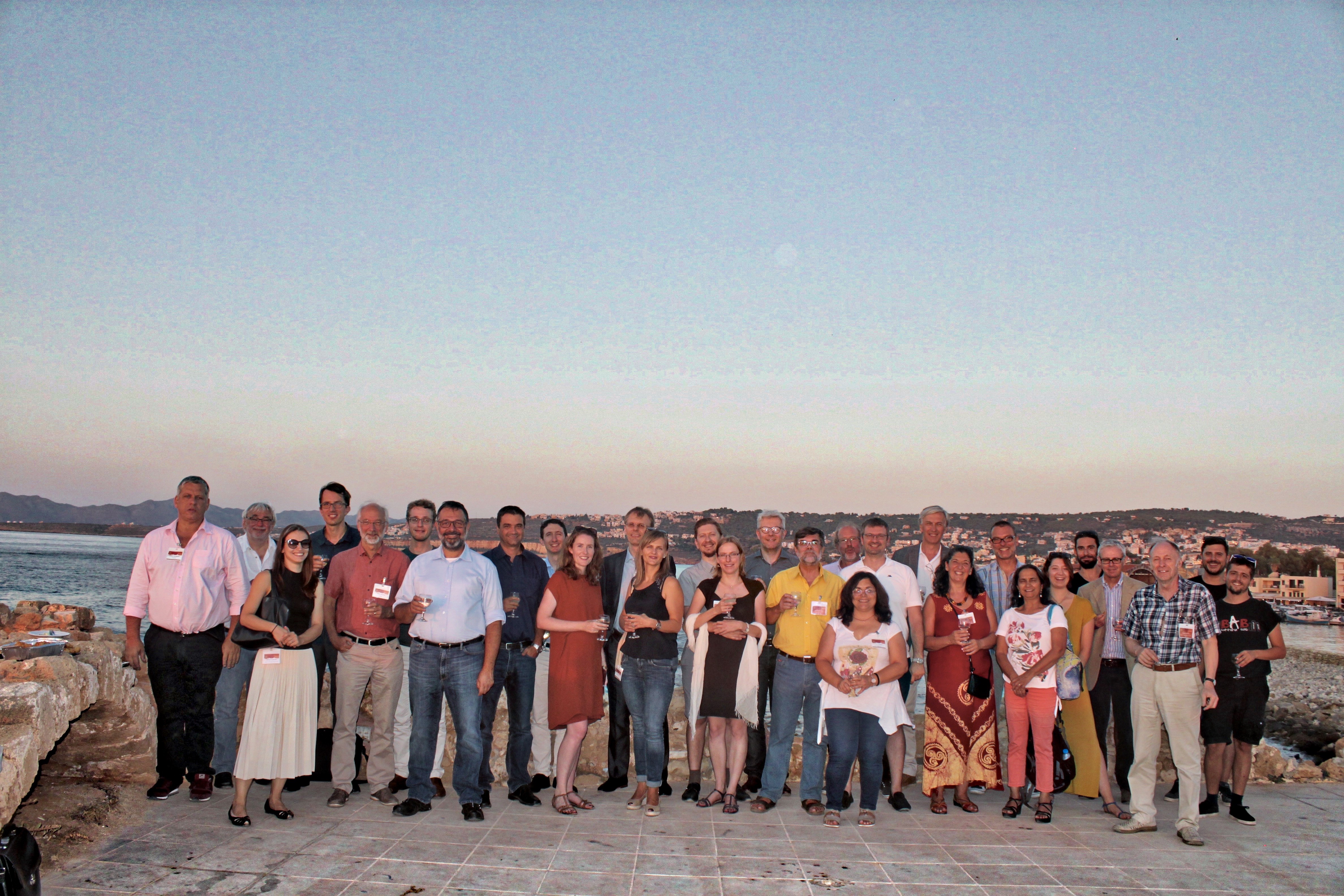![]() Accelerating health and space research
Accelerating health and space research
by Jennifer Toes (CERN)

Participants of the Workshop on Ions for Cancer Therapy, Space Research, and Material Science, over 28-30th August 2017. (Image: Grigory Feofilov)
On the shores of the Greek island Crete, scientists from across Europe gathered from 28-30th August 2017 in the town of Chania to discuss the many societal uses of particle accelerators.
Physicists have been using particle accelerators to investigate the nature of the universe since their creation some 90 years ago. However, outside of scientific research, accelerators are still somewhat misunderstood – despite there being around 30,000 in operation today.
Whilst particle physics is most commonly associate with accelerators, most can actually be found elsewhere through applications for medicine, security, the environment, and even cultural heritage studies.
In an effort to enhance the general awareness of accelerators, the Workshop on Ions for Cancer Therapy, Space Research and Material Science gave researchers the space to discuss the balance between fundamental research and societal applications.
Over 50 participants attended the meeting, which consisted of a broad scientific programme as well as public outreach events. Dr. Suzie Sheehy from Oxford University opened the scientific portion of the meeting with an overview of the history, current and potential uses of accelerators, with an emphasis on ion therapy.
The agenda spanned across accelerators for health, space research, industry, and materials science. The talks demonstrated specific projects, synergies and future avenues for development.
Indeed, particle accelerators have an important role to play in the medical landscape as a key source for many cancer treatments. Proton and ion beams offer an advantage over traditional X-ray radiotherapies as a more targeted and less damaging option.
Proton and ion therapies have been increasing since the late 1980s and will continue to continue to grow. This trend presents its own challenges in terms of cost, size, and sustainability. Here the experience of particle and accelerator physicists comes into play.
The Workshop also demonstrated current work and plans for projects that may help meet demand for accelerators in clinical settings, such as HERMES: a network focused on developing medical technologies with synergies between Greek universities and technical institutes.
Beyond medicine, accelerators could even aid the future of space research.
Understanding how radiation exposure may affect equipment and human biology is crucial to the success of any future space exploration. Accelerators can offer their own knowledge on radiation protection, as well as provide testing for other researchers.
In fact, the GSI facility in Darmstadt, Germany is currently conducting experiments aiming to identify the best shielding materials for deep space missions.
In one of the final sessions, researchers detailed their experiences of projects and centres dedicated to health and industrial accelerators.
Maurizio Vretenar, a researcher based at CERN and the Scientific Coordinator of the ARIES project, presented an overview of the opportunities for ion beam accelerators outside of fundamental research.
To that end, ARIES comprises a network focused on accelerator applications, such as treatment of wastewater and flue gases, as well as the production of radioisotopes for medical imaging and treatments.
During this final session, the speakers highlighted the importance of developing specialist projects and facilities combining expertise and equipment from multiple different fields. New multidisciplinary biomedical research facilities are being proposed around the world, such as the new project based at UT Southwestern in Dallas, Texas or the BIOLeIR study based at CERN.
